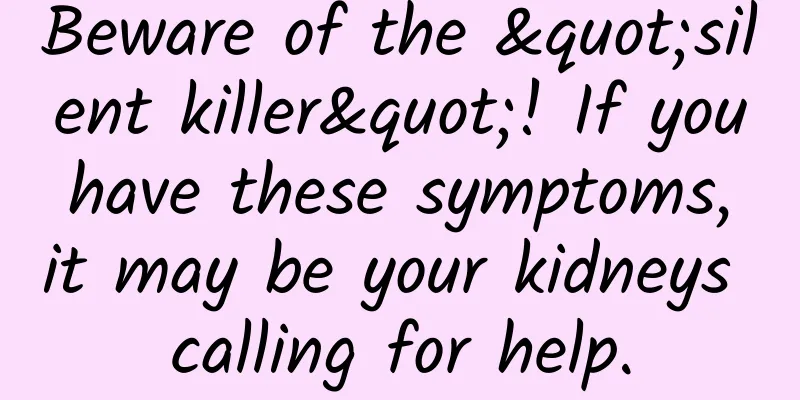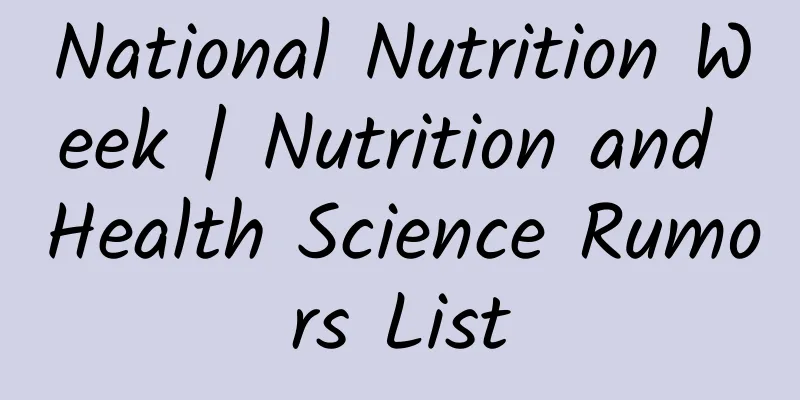Beware of the "silent killer"! If you have these symptoms, it may be your kidneys calling for help.

|
March 13, 2025 is the 20th World Kidney Day. This year's theme is "How are your kidneys? Check early to stay healthy." It aims to call on the society to strengthen the awareness of kidney health and jointly promote the early detection, prevention and treatment of chronic kidney disease. Chronic kidney disease (CKD) is known as the "silent killer". Its early symptoms are hidden and easily ignored. By the time obvious symptoms appear, it has often developed to the middle and late stages and may even require dialysis or kidney transplantation to maintain life, placing a heavy burden on patients and their families. According to statistics, there are currently more than 850 million people suffering from CKD worldwide, and it is estimated that by 2040, CKD will become the fifth leading cause of shortened life expectancy worldwide. The kidney, a fist-sized organ located in our waist, silently filters 200 liters of blood every day, removes metabolic waste, regulates blood pressure, and maintains electrolyte balance. They are the most diligent cleaners in the human body, but also the most silent organs. When the kidneys start to "strike", they often do not immediately cause severe pain or obvious discomfort. This hidden nature makes many people miss the best time for treatment. 1. Signs of chronic kidney disease If you have the following symptoms, do not ignore them. They may be a distress signal from the kidneys. Especially for patients with high blood pressure, diabetes, and people who take medication for a long time, you should be more vigilant. 1. Edema: edema in the face, lower limbs and other parts; 2. Abnormal urine: foamy urine, hematuria, increased nocturia, decreased urine volume, etc.; 3. Hypertension and anemia: difficult to control hypertension; anemia; 4. Fatigue and loss of appetite: As toxins accumulate, symptoms such as fatigue, nausea, and vomiting may occur. 2. High-risk groups for chronic kidney disease The following groups are at high risk of chronic kidney disease and should undergo regular kidney function tests 1. Patients with diabetes, hypertension, hyperuricemia, and cardiovascular diseases; 2. Patients with obesity and metabolic syndrome; 3. Those with a family history of kidney disease; 4. Those who take nephrotoxic drugs for a long time; 5. Autoimmune diseases, urinary tract obstruction, urinary system abnormalities, pregnancy, the elderly, etc. 3. How to protect our kidneys in daily life? 1. Limit sodium salt intake. A high-salt diet is harmful. A high-salt diet not only leads to high blood pressure and subsequent kidney disease, but also increases the burden on the kidneys and accelerates the progression of chronic kidney disease. 2. Smoking and drinking are not feasible, and you need to quit smoking and drinking as soon as possible. Smoking and drinking are risk factors for many chronic diseases. Smoking slows down the blood flow to the kidneys, aggravates renal artery sclerosis, and increases the risk of kidney cancer. 3. Blood pressure, blood sugar and uric acid levels, any of which is too high is not good. The kidney is one of the target organs damaged by hypertension. If diabetes and hyperuricemia are not treated promptly and effectively, they will also lead to kidney disease. Blood pressure, blood sugar and blood uric acid levels should be monitored regularly to achieve the target values. 4. Avoid drug abuse, as all drugs are toxic. Analgesics, Chinese medicines containing aristolochic acid, and certain antibiotics are common drugs that may cause kidney damage. Avoid taking drugs at will, and use them under the guidance of a doctor when necessary. 5. Eat healthy and exercise is essential. Maintaining a healthy diet with low salt and low fat is beneficial for maintaining a healthy weight, avoiding overweight and obesity, and helps reduce the burden on the kidneys. In addition, you should exercise moderately, and remember that movement is beneficial. Li Huijing, deputy director of the Nephrology Department of Hunan Aerospace Hospital , called for prevention to be better than cure. To protect the kidneys, on this special day of World Kidney Day, let us follow the eight golden rules in our daily lives to reduce the risk of kidney disease: stay healthy and exercise properly; control blood sugar; monitor blood pressure; eat healthily and maintain weight; maintain adequate water intake; quit smoking; do not take over-the-counter drugs at will; get enough sleep and do not stay up late. Performing a routine urine test and kidney function test once a year is like giving your kidneys an "annual checkup," which can help detect problems early. Let us join hands to pay attention to kidney health, spread the correct knowledge of kidney disease prevention and treatment, and break the curse of "silent killer". Remember, protecting kidneys is protecting life, and prevention is always more meaningful than treatment. Hunan Medical Chat Special Author: Li Shuqing, Li Liangang, Yang Jing from Hunan Aerospace Hospital Follow @湖南医聊 to get more health science information! (Edited by YT) |
<<: A small stone "destroyed" a kidney! His experience sounded a wake-up call for everyone
>>: Why do you rebound after losing weight? Does your body remember that you were fat?
Recommend
[Medical Q&A] Does a test report showing abnormal myocardial enzyme spectrum mean myocardial infarction?
Planner: Chinese Medical Association Reviewer: Ni...
Who are the people at high risk of abortion?
In modern society, more and more women are prone ...
“Healthy through eating” series | Can vegetables and fruits replace each other?
In daily life, many people think that vegetables ...
Drink bone soup to supplement calcium? Don't tell your mother this heartbreaking truth
Bone soup has always been favored by the elders. ...
Can drinking tea make your breasts bigger? Recommend 4 breast enhancement teas
Women all hope to have full and firm breasts, but...
Does electric fire have a lot of radiation on pregnant women?
The weather is cold in winter, and people use air...
The woman bleeds for no reason
A woman's vagina generally does not bleed for...
Is the chance of threatened miscarriage high?
For pregnant women with a higher risk of miscarri...
Use gynecological gel to expel tofu residue
For ladies, it is very important to protect your ...
What does the second pregnancy test check?
Prenatal check-ups are essential for pregnant wom...
Will I have menstruation if I have an ectopic pregnancy? Authoritative experts will tell you
The so-called ectopic pregnancy is when the ferti...
How to prevent kidney stones?
In daily life, how should we prevent kidney stone...
Breast pain but no swelling
Breasts are very important for female friends. Ma...
Brown discharge 4 days before period
Generally, women may have brown discharge during ...
What are the instruments of wind music? What are the characteristics of brass instruments in performance?
Brass instruments are widely used in symphony orc...









